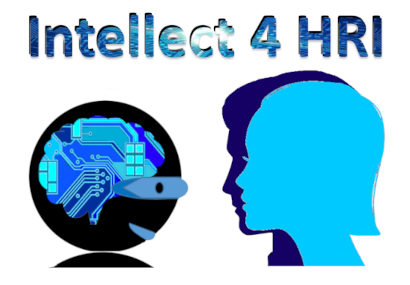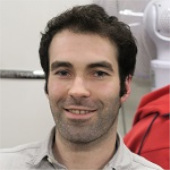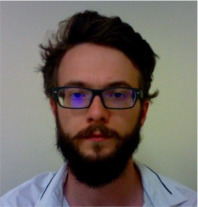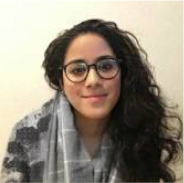Workshop OrganizersMain Organizer
Ely Repiso Polo [Post Doc. LAAS/CNRS of AI4HRI project]
Web: https://elyrepiso.wordpress.com/ Google Scholar: https://scholar.google.com/citations?user=jO_K-WgAAAAJ&hl=es Short Bio: Dr. Ely Repiso is a Post PhD researcher related to the trilateral project of Artificial Intelligence for Human Robot Interaction (AI4HRI) at LAAS-CNRS of Toulouse, France. She received her Ph.D. in Collaborative Social Robot Navigation in Accompanying and Approaching Tasks from the Doctorat en Automàtica, Robòtica i Visió (ARV) of the Universitat Politècnica de Catalunya (UPC) in 2020, with international mention and qualification of Excellent Cum Laude. During her Ph.D., she did a research stay at the ATR of Japan under the supervision of Takayuki Kanda, and she participates with her Ph.D.-work in several national and international projects related to the Institut of Robotica e Informatica Industrial (IRI) (Cargo-ANTS, ColRobTransp, Robot-Int-Coop, ROBOCOM++, TERRINET, AI4EU, MdM). She was an assistant professor at the UPC during the academic courses of 2019/2020 and 2020/2021. Her research interests include people-tracking, people prediction, robot navigation, robot-human accompaniment, robot approaching to people, task planning for Human robot Interaction, and general HRI.
Second Main Organizer
Malcolm Doering [Post Doc. Kyoto University of AI4HRI project] Web: https://malcolmdoering.wordpress.com/ Google Scholar: https://scholar.google.com/citations?user=jgt0yGoAAAAJ&hl=es&oi=ao Short Bio: Dr. Malcolm Doering is a Specially-appointed Assistant Professor at the Human-Robot Interaction Laboratory, Kyoto University; and Cooperative Researcher at Interaction Science Laboratories, Advanced Telecommunications Research Institute International (ATR), Kyoto, Japan. His research focuses on data-driven imitation learning methods for human-robot interaction. More specifically, he researches how robots can learn interactive social behaviors automatically from data using machine learning, with minimal input from human designers or expensive manual annotation. More generally, He is interested in artificial intelligence, robotics, and linguistics. In the past, he was a research intern at Hiroshi Ishiguro Laboratories, Kyoto, Japan and a research assistant at the Language and Interaction Research group at Michigan State University, USA. He graduated with a BS in computer science and BA in linguistics / Japanese language from MSU in 2013, an MS in computer science from MSU in 2015, and a PhD in human-robot interaction from Osaka University in 2019.
Co-Organizers LAAS/CNRS: Aurélie Clodic [Principal researcher of the project (PI) in LAAS/CNRS of AI4HRI project] Web: https://homepages.laas.fr/aclodic/drupal/content/home Google Scholar: https://scholar.google.com/citations?user=CP9q-Y4AAAAJ&hl=es&oi=ao Short Bio: Dr. Aurélie Clodic is Research Engineer at LAAS (PhD in robotics (2007), Bachelor in Psychology (2018)). Her research aims to study human-robot collaborative task achievement as well as robotics architecture design (focused on decision-making and supervision. Her recent contributions involved on-line quality of interaction measurement, knowledge base reasoning through ontology management as well as situation assessment. She is the principal investigator of the “toward a Framework for Joint Action” workshop series (ła.sciencesconf.org). Where she leads a dialog with psychologists and philosophers. She is part of the ANITI institute where she is responsible for the Robotics theme. She contributed in several national (ANR MaRDi, JointAction4HRI) and European (COGNIRON (FP6), SAPHARI (FP7), MuMMER (H2020)) projects. She is the french PI of the ANR trilateral German-French-Japanese AI4HRI project. She is responsible for LAAS of the ANR PRCI ELSA (Effective Learning of Social Affordance) and ANR ASTRID DISCUTER (about Interactive Dialog) projects.
Rachid Alami
Web: https://homepages.laas.fr/rachid/ Google Scholar: https://scholar.google.com/citations?user=lda-c1UAAAAJ&hl=es&oi=ao Short Bio: Dr. Rachid Alami is Senior Scientist at LAAS-CNRS. He received an engineer diploma in computer science in 1978 from ENSEEIHT, a Ph.D in Robotics in 1983 from Institut National Polytechnique and an Habilitation HDR in 1996 from Paul Sabatier University. He contributed and took important responsibilities in several national, European and international research and/or collaborative projects (EUREKA: FAMOS, AMR and I-ARES projects, ESPRIT: MARTHA, PROMotion, ECLA, IST: COMETS, IST FP6 projects: COGNIRON, URUS, PHRIENDS, and FP7 projects: CHRIS, SAPHARI, ARCAS, SPENCER, H2020: MuMMER , France: ARA, VAP-RISP for planetary rovers, PROMIP, several ANR projects).
Guillaume Sarthou Web: https://www.laas.fr/public/fr/annuaire?userid=25801 Google Scholar: https://scholar.google.com/citations?user=pbcmYj0AAAAJ&hl=es&oi=ao Short Bio: Dr. Guillaume Sarthou is a Postdoctoral researcher in Robotics at the Institute for Artificial Intelligence of Bremen, Germany. He received his PhD in robotics in 2021 for which he focused on knowledge representation and exploitation for Human-Robot Interaction. The work of his thesis was included in several projects: JointAction4HRI from the ANR-16-CE33-0017 and the MultiModal Mall Entertainment Robot (MuMMER Project) from Horizon 2020 program. His research interests are about cognitive architecture applied to Human-Robot Interaction in general going from the assessment of the situation to symbolic task planning with a strong link to the knowledge representation of both the robot and the humans it interacts with.
KYOTO UNIVERSITY: Takayuki Kanda [Principal researcher of the project (PI) in Kyoto University of AI4HRI project] Web: https://www.robot.soc.i.kyoto-u.ac.jp/~kanda/ Google Scholar: https://scholar.google.com/citations?user=BL9EACgAAAAJ&hl=es&oi=ao Short Bio: Dr. Takayuki Kanda is a professor in Informatics at Kyoto University, Japan. He is also a Visiting Group Leader at ATR Intelligent Robotics and Communication Laboratories, Kyoto, Japan. He received his B. Eng, M. Eng, and Ph.D. degrees in computer science from Kyoto University, Kyoto, Japan, in 1998, 2000, and 2003, respectively. He is one of the starting members of Communication Robots project at ATR. He has developed a communication robot, Robovie, and applied it in daily situations, such as as peer-tutor in an elementary school and a museum exhibit guide. His research interests include human-robot interaction, interactive humanoid robots, and field trials.
Dražen Brščić Web: https://drazenb.github.io/ Google Scholar: https://scholar.google.com/citations?user=XvMpFZQAAAAJ&hl=es&oi=ao Short Bio: Dr. Dražen Brščić is an associate professor at the Department of Social Informatics at Kyoto University, Kyoto, Japan. He received his PhD degree from Tokyo University, Tokyo, Japan. He was Senior Research Assistant at Institute of Automatic Control Engineering of Technische Universität München, Munich, Germany (from 2008 to 2010). He was Research Scientist at the Intelligent Robotics and Communication Laboratories (IRC) of the Advanced Telecommunications Research Institute International (ATR), Kyoto, Japan (from 2011-2016). He was Assistant Professor of the University of Rijeka, Faculty of Engineering (from 2016-2019). He was Assistant Professor at the Kyoto University, Graduate School of Informatics, Department of Social Informatics (from 2019-2020).His research interests include, People-tracking, Localization, Mobile Robotics and Human-Robot Interaction.
BREMEN UNIVERSITY: Michael Beetz [Principal researcher of the project (PI) in Bremen University of AI4HRI project] Web: https://ai.uni-bremen.de/team/michael_beetz Google Scholar: https://scholar.google.com/citations?user=mINzfREAAAAJ&hl=es&oi=ao Short Bio: Dr. Michael Beetz is a professor of Computer Science at the Faculty for Mathematics & Informatics of the University Bremen and head of the Institute for Artificial Intelligence (IAI). IAI investigates AI-based control methods for robotic agents, with a focus on human-scale everyday manipulation tasks. With his openEASE, a web-based knowledge service providing robot and human activity data, Michael Beetz aims at improving interoperability in robotics and lowering the barriers for robot programming. Due to this the IAI group provides most of its results as open-source software, primarily in the ROS software library. Michael Beetz received his diploma degree in Computer Science with distinction from the University of Kaiserslautern. His MSc, MPhil, and PhD degrees were awarded by Yale University in 1993, 1994, and 1996 and his Venia Legendi from the University of Bonn in 2000. Michael Beetz was a member of the steering committee of the European network of excellence in AI planning (PLANET) and coordinating the research area “robot planning”. He is associate editor of the AI Journal and the coordinator of the German collaborative research centre EASE (Everyday Activity Science and Engineering, since 2017). His research interests include plan-based control of robotic agents, knowledge processing and representation for robots, integrated robot learning, and cognitive perception. In 2019, he received an honorary degree from the University of Örebro for his longstanding cooperation and exceptional, international research.
Mona Abdel-Keream [PhD Student of AI4HRI project]
Web: https://ai.uni-bremen.de/team/mona_abdel-keream Google Scholar: https://www.semanticscholar.org/author/Mona-Abdel-Keream/1416705883 Short Bio: Mona Abdel-Keream is a Ph.D. student at Institute of Artificial Intelligence (IAI) in Bremen University, Bremen, Germany. She received her Masters degree from Fachhochschule Technikum Vienna, Austria in 2017. She did several Interships, at CogVis (Cognitive Computer vision) active and assisted living technology, Vienna, Austria (Jan – May 2015); and at Artificial Hands Lab, The BioRobotics Institute, Scuola Superiore Sant’Anna, Pisa , Italy (Dec – May 2017). Her research interests are development and learning from Human-Robot Interaction (HRI) in simulation, Virtual reality HRI development, AI Reasoning for HRI, cognitive robotics and HRI
|











